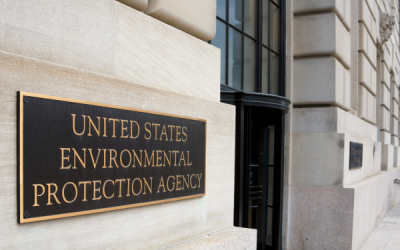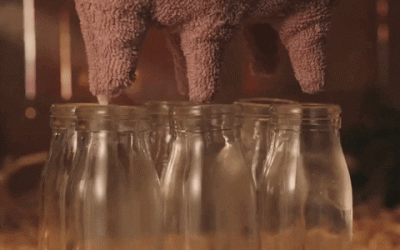An innovative seed treatment process is gaining steam in Europe, and it could have significant implications for the agriculture industry and the environment.
Turning up the heat: Swedish researcher Kenneth Alness invented ThermoSeed several years ago. After reading a book from the 1950s, he learned that some farmers would boil seeds in hot water to sterilize them before planting. This practice fell out of favor when chemical treatments became popular.
However, since chemical treatments are a big no-no in organic settings, organic farmers struggle with good seed treatments. After Alness invented an innovative way to “heat treat” seeds using steam, the practice caught on with organic farmers. But several years later, he realized this would be a good alternative even for conventional farmers.
In 2008 and 2011, two of Sweden’s largest agricultural cooperatives adopted his ThermoSeed technology, and the results have been noticed—especially by those concerned with the effects chemicals may have on the environment.
Big benefits: Lantmännen, the co-op that adopted ThermoSeed in 2008, estimates that the method saved the use of 3K cubic meters of chemicals.
Plus, growers like it too—especially when dealing with treatment dust.
According to farmer Gustaf Silén, “The bags with the seed… can be quite dusty and you get this all over you. That is not the case with ThermoSeed—it’s much easier to handle.”
Looking to the future: Although some farmers are skeptical about non-chemical options, ThermoSeed technology is proving effective, just like chemical treatments.
And, with major success in Sweden and Norway, the tech’s promoters are now looking east as they develop scaled-down treatment equipment to serve promising Asian markets.
Short Corn Packs a Punch
Dynamite comes in small packages—which can be true with new seed technology. What’s...
Congress to EPA: What’s Your BEEF with Meat Packers?
The Environmental Protection Agency (EPA) is considering new regulations that take aim at meat and poultry processors.
And some members of Congress have a BEEF with the EPA’s proposals.
The proposed rules: In late January, the EPA released the details of its proposed “Clean Water Effluent Limitations Guidelines and Standards for the Meat and Poultry Products Point source category.”
Huh?
Basically, the EPA formally published its proposals to combat wastewater contaminants that come from slaughterhouses.
Okay… that makes more sense.
At the heart of the rules proposal is a concern from environmental groups about nitrogen and phosphorus pollutants that originate from slaughterhouses. In some cases, the wastewater goes directly into waterways. In other cases, the water goes to municipal wastewater treatment facilities.
But not everyone is on board with the EPA’s suggestions…
Congress responds: Last week, two U.S. representatives—Eric Burlison (MO) and Ron Estes (KS)—pushed back against the EPA and introduced the “Banning EPA’s Encroachment of Facilities (BEEF) Act.” If passed and signed by President Biden, the law would prohibit the EPA from finalizing, implementing, or enforcing the rule.
According to the lawmakers, the proposed rules place undue burden on small processors—costs that can be absorbed by larger companies.
Soundbite: “The… proposed regulation isn’t just an attack on family-run small businesses, it’s an attack on rural communities,” said Burlison. “These meat and poultry processors are the lifeblood of our communities. The BEEF Act… lets these hardworking Americans do what they do best, produce safe, affordable food for our families.”
University of Illinois Makes Big Mooves in Milk Production
Pump it up: Scientists led by Matt Wheeler at the University of Illinois Urbana-Champaign are...




